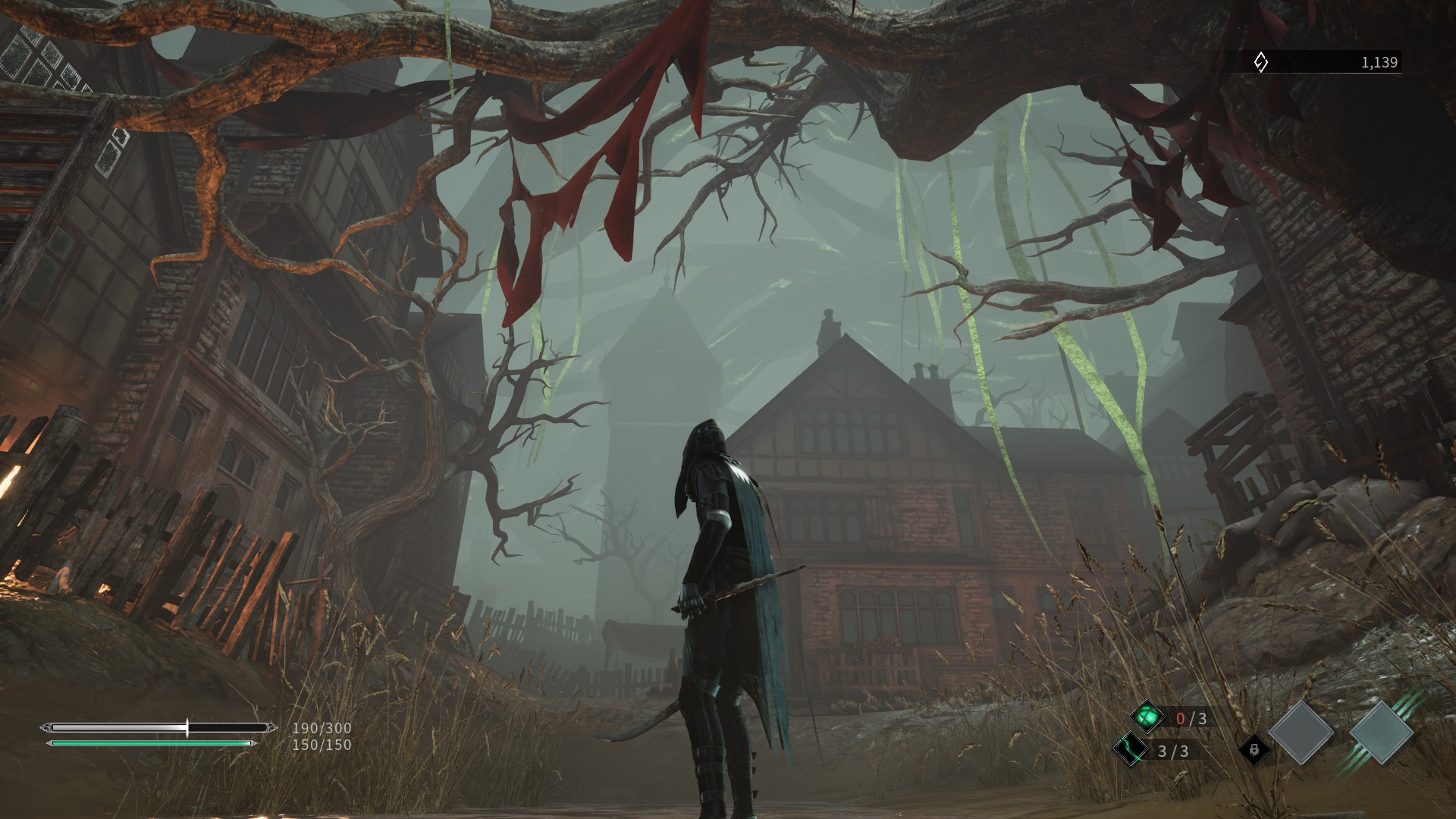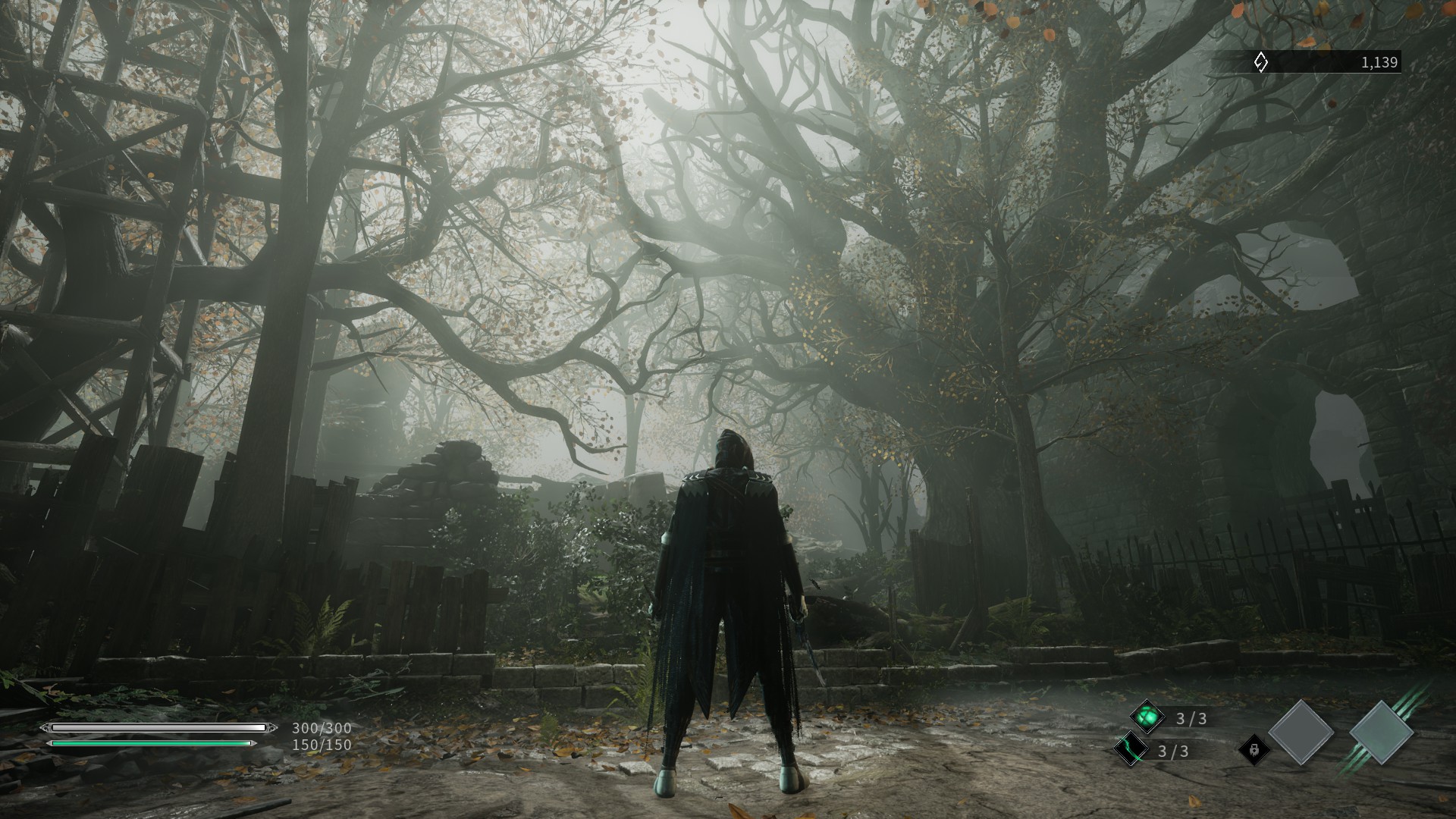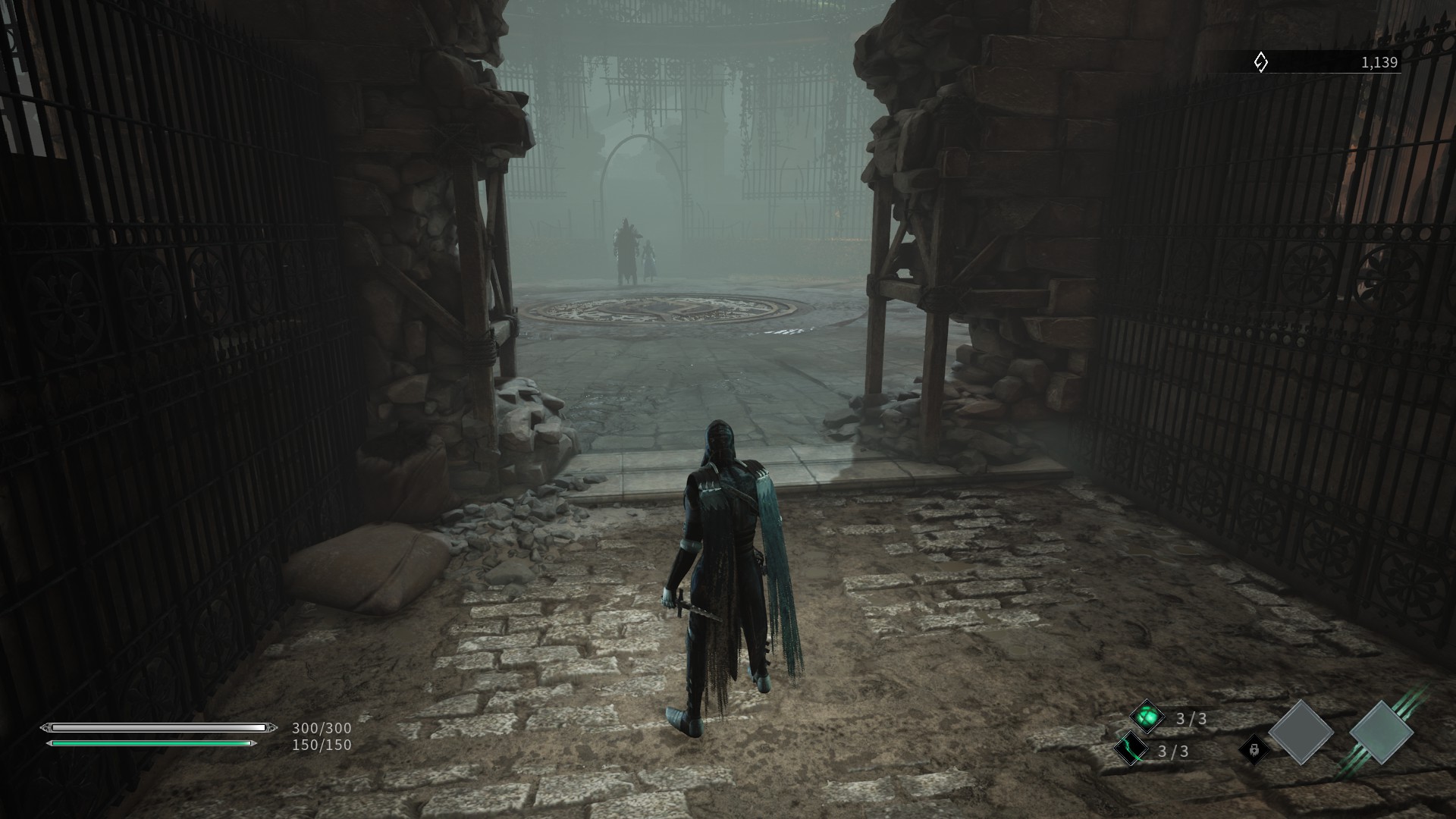Preview: Thymesia
2022-08-16 by Callum Andrews
No tutorial
The saying "The greatest form of flattery is imitation" must be one of the most used phrases there is, but probably also holds true in so many cases when it comes to different entertainment mediums that it's hard not to think of it when you play a game that reminds you of another one. For example, Thymesia reminds you of several of the great games coming from From Software. The Souls series, Bloodborne and Sekiro. Sometimes it feels like OverBorder Studio took all the good parts that worked in those games and stuck them into Thymesia.
As you might have already guessed, Thymesia is another game in the lake (not sea, because there aren't actually that many games compared to other genres) of Soulsborne games. It implements all of the familiar mechanics of losing your progress if you die, hard-as-nails combat, a dark atmosphere, even harder-than-nails bosses, and so on. Like in Sekiro you play as a preset character named Corvus who finds himself in the land of Hermes. Hermes was once a land stricken by plague and disease which they were able to cure with the help of alchemy. Yet, alchemy soon brought with it even greater perils to the cursed nation and Hermes was beset by monsters. It is up to Corvus to try and find out how to rid the land of this curse and get to the bottom of what has actually happened and why.

Hit em where it hurts
Combat which is the main attraction of any soulslike game is fast and requires precision. If we were to compare it to any of the From Software games, we could say that it's not as fast as Sekiro, but not as slow as Dark Souls. Even though there are no shields to protect the player, the main form of defense are the parry and dodge. The player can also throw feathers at enemies to interrupt attacks. The combat works in such a way that when the player makes regular attacks with their sword, they only wound the enemy. This opens a timed window of opportunity for them to make another form of attack, which is a plague attack, which they need to execute with the claw Corvus has equipped. If the player connects with the claw attack while the enemy is "wounded", then the enemy's health will whittle down, otherwise, the enemy's health just regenerates to the point where it was before. This of course puts a certain spin on the combat which is somewhat reminiscent of the combat in Sekiro, only in a different format. One interesting thing that Thymesia does differently from its soulslike brethren is that here the player doesn't have to consider stamina depletion. Stamina doesn't exist for Corvus. He is almost able to keep up an attack indefinitely, yet the developers have taken measures against this happening. The solution that the developers have taken to counter this is by making enemies able to counter Corvus attacks. So the timing and pacing of one's attacks need to be taken into consideration since enemies will strike back if the player gets too reckless.

Apart from the sword and claw which will be Corvus's bread and butter combat-wise, Corvus has also other types of weapons up his sleeve, like stated earlier Corvus can throw feathers at enemies which can help interrupt enemy attacks but are also great to use on enemies for their wounds not to heal. Because as long as enemies are getting attacked their wounds won't heal and Corvus can keep his distance if the situation requires it. Most of the time, if not all of the time, combat requires you to be up close and personal, so learning how to parry attacks will be crucial. The other types of tools that Corvus has at his disposal are the various Plague weapons. These weapons are collected by defeating different enemies which will occasionally drop different weapon shards. Once enough shards are collected, Corvus can equip that specific plague weapon. All of the weapons have their own distinct characteristics and attributes. Selecting the right weapon for the right occasion will be integral for the player to progress. The player will only be able to equip one plague weapon initially, but further upgrades will allow for even two or three down the line. The use of plague weapons consumes energy which Corvus has a finite amount of but can be replenished through combat given that the right talents are acquired. Attacks with plague weapons deal damage to the enemy instantly and don't require the use of the claw.

Progress through failure
Being a soulslike it goes without saying that even here the player will need to upgrade and level up Corvus. Instead of souls or blood echoes, here the player collects memories. And like their counterparts, they can be lost if the player is defeated. The main stats that the player will be leveling up are vitality, energy, and strength. All of them are pretty self-explanatory and boost the players' health, energy and attack power. Besides upgrading Corvus's various stats, he will also gain talent points which the player can redistribute as they see fit and according to their playstyle. Once a talent is acquired it isn't set for the entirety of the game and the point can be redistributed. The environments are dark and the atmosphere feels oppressive, as it usually is in this type of game. Also as is par for the course when it comes to a Soulsborne game it will probably have several endings which will play out depending on the players' choices in the game.
Where the influences for Thymesia come from are pretty clear from the outset, yet the game has enough of its own characteristics to set it apart from its brethren to make it feel fresh and new. It's going to be hard, it's going to be frustrating and it will probably make you break a controller or two. But like every Soulsborne fan already knows, few games outside this genre will give you that feeling of satisfaction like these games can.
Thymesia is set for release on the 18th of August and will be available for PC, Xbox series X|S, Playstation 5 and Nintendo Switch